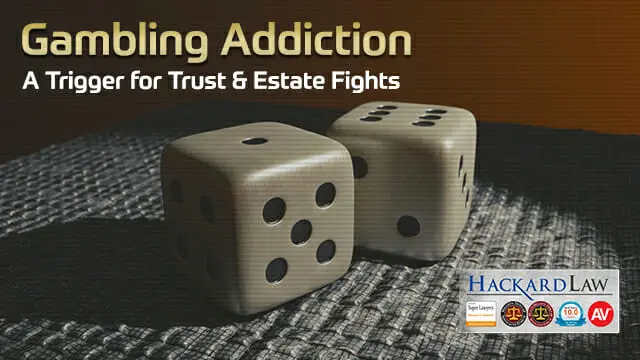
Gamblers & Addiction | Triggers for Trust & Estate Disputes
Compulsive gambling is a problem for the gambler and his or her loved ones. Gamblers Anonymous members believe that:
“Compulsive gambling is an illness, progressive in its nature, which can never be cured, but can be arrested…The Gamblers Anonymous concept is that compulsive gamblers are really very sick people who can recover if they follow to the best of their ability a simple program that has proved successful for thousands of other men and women with a gambling or compulsive gambling problem.”
Compulsive gamblers may present a variety of issues in trust & estate litigation. A trustee who is a compulsive gambler may find it hard to satisfy their fiduciary duties. Settlors of trusts might disinherit a child because of their compulsive gambling proclivities. Disinheritance may ignite estate fights. The Gamblers Anonymous website recites some characteristics of a compulsive gambler, among them:
- Inability and Unwillingness to accept reality;
- Emotional insecurity;
- Immaturity;
- The desire to be a “big shot” and feel all powerful;
- And sometimes the subconscious desire to punish themselves.
Compulsive gamblers’ denial of reality can produce some very strange results. Ponzi schemes; elder financial abuse; estate thefts; unlawful asset transfers; and disinheritance are some offshoots from compulsive gambling.
There are scores of reasons for estate & trust litigation – compulsive gambling is just one of them. If you would like to talk with Hackard Law about your case, call us today at 916-313-3030. We represent clients in significant cases throughout California’s major urban areas, including Sacramento, San Jose, Alameda, Los Angeles and San Diego. The simple truth is that beneficiary rights must be protected – so let’s get to work for a better outcome.

 (916) 775-8542
(916) 775-8542